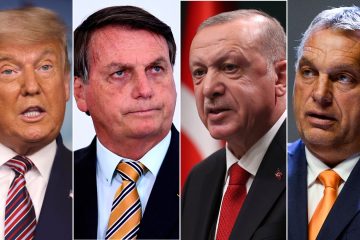
OxPol Blogcast. Politics, Re-Imagined — Democratic Backsliding with Vicente Valentim
As we witness a rise in radical right politics in Europe and beyond, our host Cassandra van Douveren speaks to Dr. Vicente Valentim, a Postdoctoral Prize Research Fellow at Nuffield College at the University of Oxford. Vicente’s work focusses on the role of social norms in normalising the expression of views and behaviours associated with authoritarianism. Join us as we discuss his upcoming book, The Normalisation of the Radical Right: A Norms Theory of Political Supply and Demand (forthcoming: September 2024), pathways to restore democratic norms and Vicente’s hopes for the future. Politics, Re-Imagined is a series by the Department of Politics and International Relations (DPIR) at the University of Oxford focused on exploring tangible and sustainable solutions to the …

OxPol Blogcast. Politics, Re-Imagined — Media, Identity and Misinformation with Rasmus Kleis Nielsen
How can media organisations reach those who feel the news is not for them? And is our current age of fake news fundamentally different from the past? Tune in as our host Cassandra van Douveren speaks to Dr. Rasmus Kleis Nielsen, the Director of the Reuters Institute for the Study of Journalism and a Professor of Political Communication at the University of Oxford to discuss these questions. Rasmus’ work focusses on the changing role of the news and media in our societies. His recent book, Avoiding the News: Reluctant Audiences for Journalism (2023), written with Benjamin Toff and Ruth Palmer, explores why particular audiences are reluctant to follow the news and how this can be addressed. He has also written …

Identity Capital and the North-South Gap in Explaining Populism
The literature on populism in the 21st century often assumes that far-right leaders draw their support from voters who have lost out to globalisation. This is the case among low-skilled, white workers in Global North democracies, including the United States. But, there are also meaningful occurrences of backlash against the political establishment and liberal values in parts of the Global South that have clearly benefited from the post-Cold War trade openness. For instance, two of the largest democracies in the developing world have been shaken by right-wing movements that came to power with the support of the winners of economic liberalisation. In Brazil, Jair Bolsonaro, a former army captain, won the presidency in 2018 with the support of agribusiness exporters …









